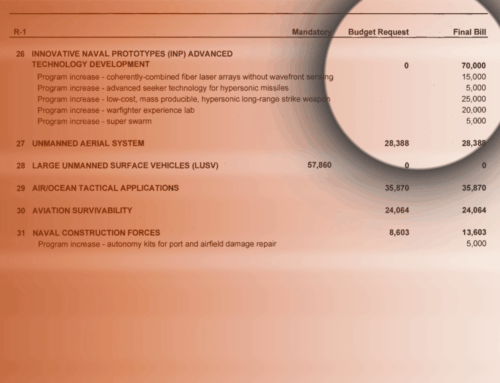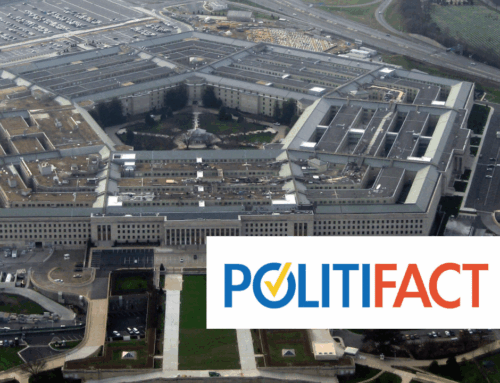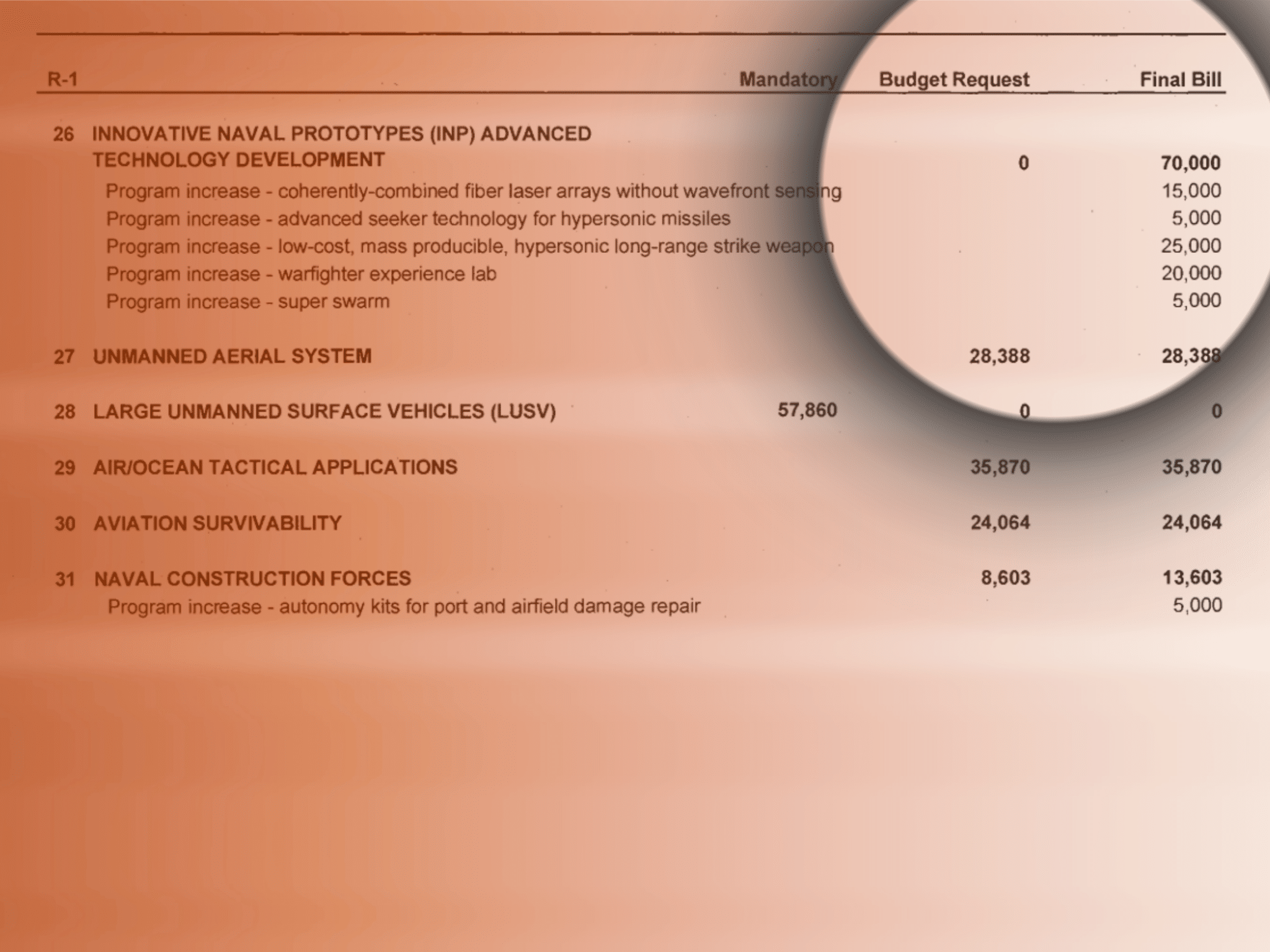Since 2017, Congress has required each military service and combatant command to submit unfunded priority lists (UPLs), extrabudgetary wish lists for programs and projects that didn’t make their way into the president’s formal Pentagon budget request. It’s a bad way to budget for national security—it increases the Pentagon’s topline, funds congressional pet projects at the expense of priorities included in the actual budget request, and undercuts civilian control of the military by forcing service chiefs to side-step civilian leadership. And this year, these lists are more extra than usual, both in terms of their own size and the Pentagon budget they’re hoping to hitch a ride on.
If you think back to just before July 4, you may recall that Congress passed a rather large piece of legislation known by a variety of names—budget reconciliation, the One Big Beautiful Bill, the tax bill, and so on. Well, aside from promising to increase the debt by more than $4 trillion over the next decade, that bill included $156 billion for the Pentagon, $113 billion of which the president requested for FY 2026. With that increase factored in, the president’s national security spending request was already over $1 trillion, a nearly 12 percent increase over enacted spending this year.
But the Pentagon’s UPLs this year total more than $53 billion.
It’s unclear if the national security funding in reconciliation responds at all to these UPLs—the Armed Services Committees will clarify this when they send instructions to the Pentagon reflecting congressional intent behind the program level funding in reconciliation. But if Congress were to add $53 billion on top of the base budget request and the reconciliation funding, national security spending for FY26 would increase by nearly 18 percent over this year’s enacted funding.
When looking at the UPLs themselves, the trend is even more alarming. In FY 2024, UPLs totaled at least $18.4 billion. In FY 2025, they jumped to at least $30.8 billion. This year’s $53 billion worth of wishes represent a 73 percent increase over last year’s, and a 190 percent increase over two years ago. And again, the Pentagon is requesting all this extra funding on top of the roughly 12 percent increase in national security spending now secured through the passage of reconciliation.
INDOPACOM, the combatant command for the Pacific region, topped the list, requesting $11.89 billion, a relatively modest 8 percent increase over its UPL request last year, though a remarkable 241 percent increase over the year before. The Air Force was a close second, requesting $11.68 billion—but this marked a 234 percent increase over its UPL last year, and a 376 percent increase compared to FY 2024. On a percentage basis, the single biggest spike in requested funds came from Space Force, which sought $5.98 billion, a 420 percent increase over last year, and a 1,152 percent increase over its FY 2024 UPL.
To be fair to the service leaders and combatant commanders, many of these lists were submitted before the budget reconciliation bill passed, and the president’s budget excluding the request for funding through reconciliation was flat relative to last year. It’s possible that these lists were written based on the concern that reconciliation wouldn’t pass. It’s also possible they were meant to fund projects on top of those included in reconciliation and the base budget request.
Either way, now that reconciliation has passed, even though the Pentagon will have an extra $113 billion to work with for FY 2026, Congress may still add money through regular appropriations bills in response to these UPLs. Last week, in a vote of 26-1, the Senate Armed Services Committee advanced its version of the National Defense Authorization Act (NDAA) with an additional $32 billion for national security on top of the president’s budget request, so this is not theoretical. While appropriators will ultimately dictate the Pentagon’s budget for FY 2026, this spending spree in the authorizing committee, likely driven in part by these UPLs, is a bad sign of what’s to come.
Considering these trends, the reckless spending generated by the budgetary malpractice of UPLs looks poised to continue growing, unless Congress acts. In the last Congress, lawmakers introduced bipartisan legislation called the Streamline Pentagon Budgeting Act to end the requirements for UPLs. While ending the practice altogether would be ideal, repealing the requirement would help ensure that lawmakers only consider funding for unfunded items that the service leaders and combatant commanders deem truly essential, rather than bloating the budget with “nice-to-haves” that don’t account for budget constraints and the needs of other service branches. As we’ve been saying for years, that sounds like common sense to us.









